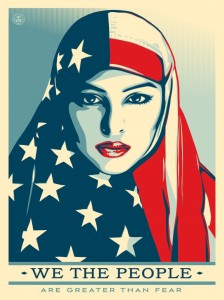 Like many people across the world, the words of Pastor Martin Neimoller have been foremost in my mind these days. Set on permanent repeat actually. A bass chorus chanting under my daily conversations and routines ever since Trump assumed occupation of The White House, and particularly in light of Holocaust Memorial Day.
Like many people across the world, the words of Pastor Martin Neimoller have been foremost in my mind these days. Set on permanent repeat actually. A bass chorus chanting under my daily conversations and routines ever since Trump assumed occupation of The White House, and particularly in light of Holocaust Memorial Day.
First they came for the Communists
And I did not speak out
Because I was not a communist.
I am assuming you are familiar with the poem and its chilling reminder of how dictatorships begin and where they end. If not, I advise you to commit it to memory and keep its message close to your heart in these troubled time.
But this morning I realised something important: the poem is wrong. They—the big, faceless (well, no longer faceless, actually), all powerful, fascist THEY do not come for activists first. They come for the artists. Upon realising this, I felt stupid for never seeing it before.
As a second generation Drama teacher, actor, writer, singer and advocate of the arts, I have always known that The Arts frequently go unacknowledged and under-appreciated. In my student days at an American High School, I raged about the fact that The Speech Team I competed and regularly won for never received the same sort of recognition given to the football team who regularly lost. Out amazing, talented, hardworking Music Department had to sell candy bars every year just to afford the basics of uniforms, instruments and travel expenses. I never once saw the sports teams having to do this. It enraged me.
Thirty years later, as a teacher of The Arts, little has changed. Arts programs are always the first to go. Artists accept this. We hate it but we accept it. We are not viewed as essential or important or necessary to the world, no matter how deeply we know in our hearts that we are.
But this morning I woke up and realised I had it all wrong. Not only are we essential—of COURSE we are essential—but those in power know we are. The Big, Bad They knows exactly just how essential and powerful and necessary artists are and that’s why The Fascist They is terrified of artists. That is why artists become targets, and not just for budget cuts.
Who did terrorists attack not once but twice, in 2011 and 2015? Charlie Hebdo. A magazine. Why was Charlie Hebdo targeted? Because of art. According to inside sources, Trump plans to cut funding for the National Endowment for the Arts and for Corporate Broadcasting. Even before assuming office, Trump began a Twitter war with the artists of Saturday Night Live and Hamilton and, of course, with the press.
In the seventeenth century, Cromwell shut down the theatres. Before him, the medieval church did the same. Both Cromwell and the Church he despised believed the arts were sinful and dangerous. In the cast of the latter, this did not apply when the arts were used to glorify their version of God. Hitler in Germany, Mussolini in Italy, Franco in Spain—all suppressed the arts through censorship and media control. It’s practically step three of The Dictator’s Handbook: control the artists. If you can’t control them, shut them up.
Why?
Because The Big Bad They knows artists have power. Possibly more power than the military or the agitators of the opposition. Art stays. Art expresses. Art hits us in the head and the heart. Art makes us laugh at the people who want to scare us. Art changes everything.
 In English classes, I teach about the importance of art in World War One propaganda. How poetry and poster art rallied the reluctant to the cause. A century later, poetry is all that remains of Wilfred Owen, John McCrae and August Stramm. Anne Frank never meant to use her diary to change public understanding of The Holocaust, but it did. She showed the world what it lost through the experiences of one little Jewish girl and her family.
In English classes, I teach about the importance of art in World War One propaganda. How poetry and poster art rallied the reluctant to the cause. A century later, poetry is all that remains of Wilfred Owen, John McCrae and August Stramm. Anne Frank never meant to use her diary to change public understanding of The Holocaust, but it did. She showed the world what it lost through the experiences of one little Jewish girl and her family.
And what did we see in the streets last week across the Globe? Wave after wave of art in the form of protest signs. The craft of knitting on display, topping the heads of the mob in fabulous pink. And music: glorious, noisy chants and song. Poetry from the podium. Angry art on the march.
Hitler knew about the power of The Arts. He was an artist himself and he used art to manipulate the image of Jews. Music too became an important rallying cry for German Nationalism.
But The Art must be controlled. It must serve The Them. It cannot be allowed to flourish.
So what?
My history teacher was forever asking us: So What? Why is this important? Why do we need to know this?
Because we have to keep making art. It is an essential part of the resistance. Keep arting, keep acting, keep writing. Keep expressing your truth and sharing it with the world. That last part is essential: share it with the world. If you are not an artist yourself, become a supporter of The Arts. Go to galleries, concerts, theatres. We need art more than ever now.
Fascists fear art, so we who wish to resist have an obligation to be their worst nightmare.
